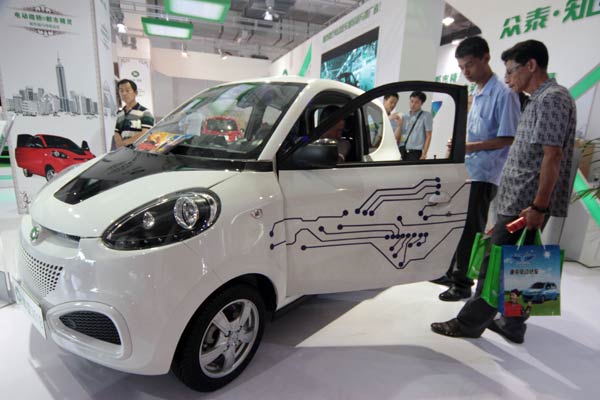 |
|
A mini electric car attracts visitors at an international exhibition of new-energy vehicles in Beijing. Both locally produced and imported new energy vehicles will be exempted from a 10 percent purchase tax starting in September in China, in a bid to save energy and reduce emissions. Wu Changqing / For China Daily |
The government's latest policy to support alternative-fuel vehicles - a waiver of the 10 percent purchase tax - will do much to accelerate individual adoption of those cars, said analysts.
They also said that a rapid buildout of public and private charging facilities is key to the future of new-energy vehicles in China.
The State Council on Wednesday announced that all alternative-fuel vehicles, whether local or imported, will be exempted from the purchase tax from September until the end of 2017.
The vehicles that qualify include pure electric cars, plug-in hybrids and fuel cell cars.
Analysts from Hongyuan Securities Co Ltd said that the tax exemption will effectively reduce the purchase price of new-energy vehicles and help accelerate sales. That is important, since these cars are usually more expensive than traditional internal-combustion engine automobiles.
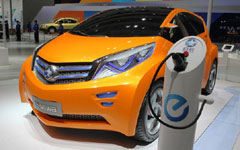 |
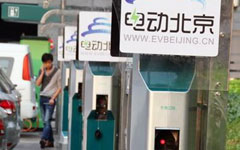 |
The policy is especially beneficial for high-end electric vehicle models such as the Tesla and the BMW i8, said the analysts.
The move followed an agreement between China and Germany on Tuesday stipulating that the electric vehicles in both countries will adopt the same charging standards and that both nations will jointly improve the development of charging infrastructure.
Also on Thursday, the Beijing municipal government said that the capital will soon announce rules mandating that at least 18 percent of the parking spaces in new residential areas be equipped with charging facilities.
"The development of a charging infrastructure is very important to improve the use of electric vehicles among individual consumers," said Science and Technology Minister Wan Gang on Thursday. "It's convenient for everyone who wants to drive an electric car."
He also praised the purchase tax waiver and said: "There will be more encouraging policies to come in the next few months, as the cabinet attaches great importance to the development of electric vehicles, which not only save energy but also contribute to the environment."
According to Wan, a range of new policies are under discussion.
Dong Yang, secretary-general of the China Association of Automobile Manufacturers, told the organization's routine news conference on Wednesday that the State Council is expected to announce policies to stimulate alternative-fuel vehicle development.
Statistics from CAAM show that in the first half of this year, Chinese manufacturers produced 20,692 new-energy vehicles and sold 20,477, up 2.3 times and 2.2 times, respectively, from a year earlier.
First-half output and sales also surpassed the full-year figures for 2013, CAAM said.
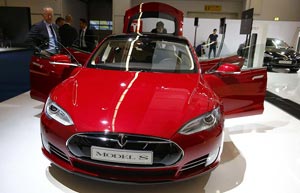 |
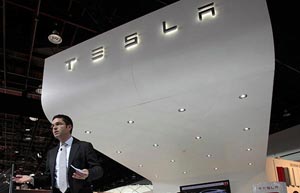 |
| Tesla faces suit over trademark in China |
